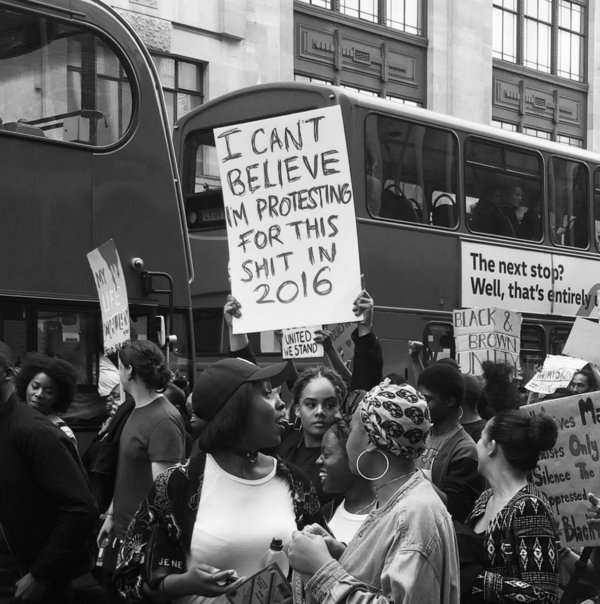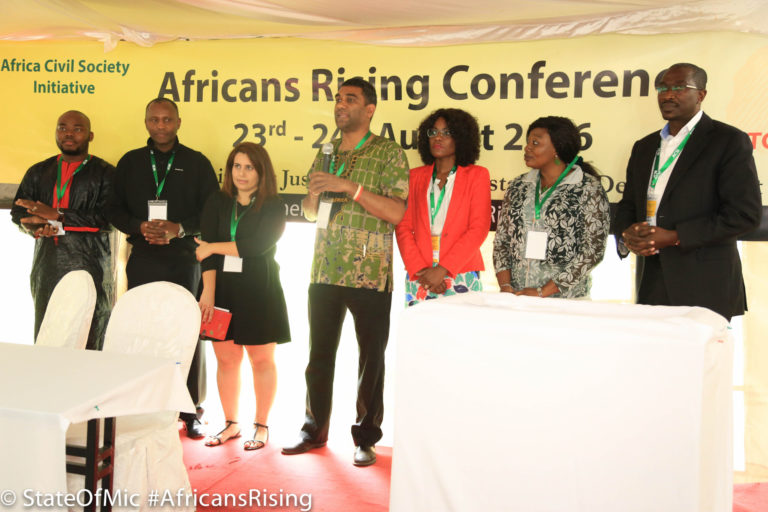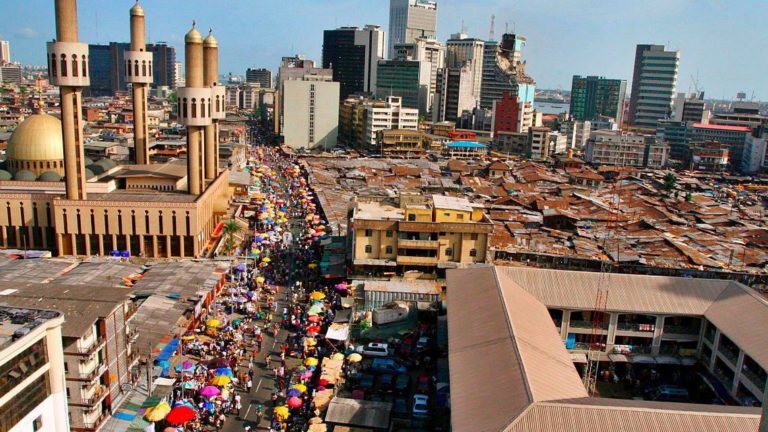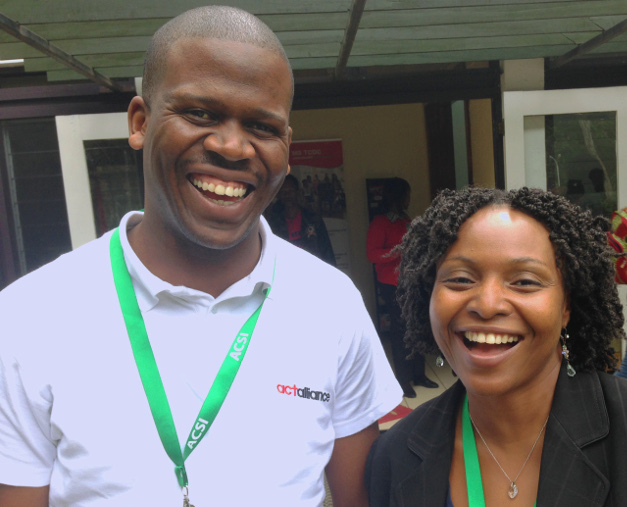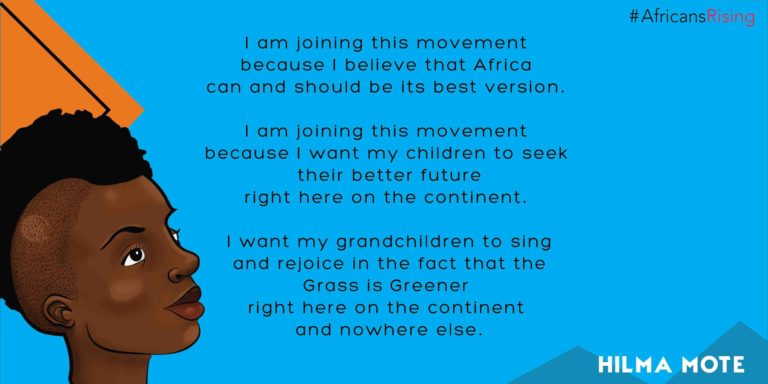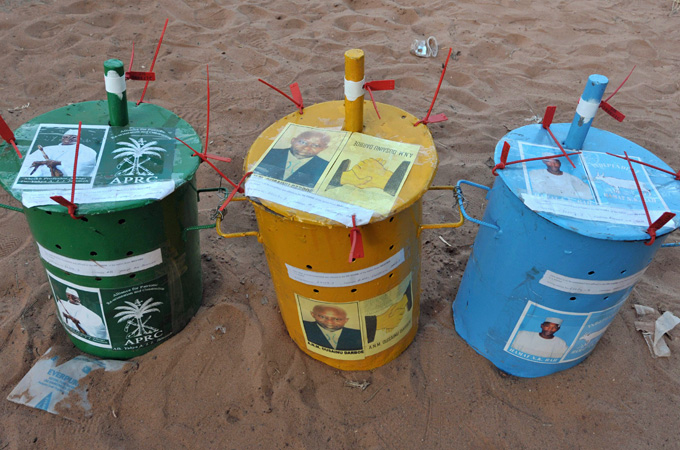Coumba Toure, @Kuumbati Storyteller; Movement Co-coordinator, Africans Rising; Board Chair, TrustAfrica
Koni Benson, Organiser and historian at the University of the Western Cape, South Africa; Research Fellow, Blue Planet Project
Meera Karunananthan, Feminist geographer, Carleton University – Canada; Co-director, Blue Planet Project
The Alternative World Water Forum – Forum Alternatif Mondial de l’Eau (FAME) in French — is part of a global movement for water justice. In March 2022, it is being organized for the first time in Africa. Here is some background information on the ways in which Africans and social movements around the world are organizing for the protection of our precious water commons for people and the planet.
Introduction
We know from ancient Egyptian texts that in Africa we used to believe that this world started with Nwn, a watery abyss. Our lives depend on water. Without water, there is no life. Sadly water is a growing money making business and with its placement as a tradable asset on stock markets including the NASDAQ, we have crossed a new threshold in its commodification.
We know from our own life experiences and from working in many communities across Africa that for far too many people, access to water is a daily struggle for survival. The search for water and the consequences of its scarcity is carried disproportionately by women and children[1]. Lack of water causes death and daily violence. Climate change is exacerbating cycles of drought and flood, which are having profound impacts on the lives and livelihoods of people living on the African continent. This is already resulting in displacement and armed conflicts. Water stress is inextricably linked to food insecurity, waterborne diseases, forced migration, conflicts, infant mortality, and violence and discrimination against girls and women. According to the World Health Organization (WHO) and United Nations Children’s Fund (UNICEF) 2.2 billion people, more than a quarter of the global population, lack safe water and sanitation- with about 490 million people in Africa lacking access to adequate water.
Fortunately the root causes of water scarcity and actions required to transform the situation, are well known. It is time to unite and take direct action. The Forum Alternatif Mondial de l’Eau (FAME in French) or the Alternative World Water Forum (AWWF, in English) offers an opportunity to work for change.
Root Causes of Water Crisis
Water is at the heart of the climate crisis, the hunger crisis, and the crisis of armed conflict on the African continent. Many of the root causes are connected. To radically challenge the web of connected injustices and to change the dangerous track the world is rolling on, we need to address the sources of the water crisis. We need to ask: why and how is water so unevenly distributed and how do we change this?
The World Economic Forum’s Global Risk Report has named water crises among its top five greatest risks for eight consecutive years[2]. As climate change increases the threats of drought and desertification, the world’s most powerful gather at the World Water Forum every three years to protect the interests of big corporations and industries seeking greater and more secure access to water in their insatiable quest for exponential growth. Together, they promote greater privatization of water and sanitation services, the commodification of water resources and the financialization of water to safeguard corporate profits while the humanitarian crisis deepens, particularly in the global South. This plays out in three major ways in Africa: privatization, the destruction of freshwater supplies and financialization.
Privatization of Water and Sanitation Services
Since the 1990s the World Bank and IMF have been pushing governments of the global South to privatize vital public services including water and sanitation. As a result, we now have three decades worth of well-documented evidence that privatization leads to more expensive and undemocratic public services that are less transparent, less reliable and less accountable to the people they serve. Africans are often told our governments are too corrupt or incapable of providing public services, yet bringing predatory for-profit corporations into vital sectors like water and sanitation have only made matters worse. As former UN Special Rapporteur on the human rights to safe drinking water and sanitation argues, “the imperative of private providers to make as much profit as possible can undermine States’ obligation to provide affordable water and sanitation services to all.”
The privatisation of public services has proven disastrous in Africa. Nigeria, for example[3], saw a 34 percent increase in water bills.
For decades, the World Bank has helped water corporations seeking access to markets in the global South by insisting that water t be paid for and distributed through full cost recovery where people only receive what they can afford. Where these World Bank loan conditions have not led to outright privatization, they have served to reform public utilities in order to make them run like businesses to become more attractive to private investors. This is why even public sector utilities in Africa have used methods like pre-paid water meters to ensure their financial viability at all cost.
Corporations and their proponents have justified these inhumane practices by co-opting the language of environmentalists about water conservation ” Hiding behind technical jargon, they claim people will not respect water if it is free- as if African peasant farmers and residents of urban informal settlements s are responsible for global shortages in water
The Destruction of Freshwater Supplies
In an environment of growing competition for limited water supplies, corporations are over extracting and polluting water sources putting the lives of current and future generations of Africans in peril.
Bottled water is one of the many ways in which water is turned into a commodity. With clean drinking water in short supply, the bottled water industry sees lucrative opportunities in Africa. At one end of the spectrum, we see high-end consumers including tourists and wealthy local consumers who don’t trust public drinking water systems and at the other end of the spectrum we see a growing market of poor people who are forced to pay exorbitant prices for a much lower quality product because there are no alternatives.
Meanwhile, beverage companies including Coca Cola and Nestlé are tapping into limited water supplies with little regard for local populations. During the 2018 drought in the Western Cape region, Coca Cola disregarded government-issued water restriction measures[4] continuing to illegally extract large volumes of water from an overtaxed municipal water system until the company could build its own borewells.
In addition, Africa’s mineral wealth and climate have drawn multinationals in agriculture and, extractive industries that are constantly pushing for greater impunity as they over extract and pollute watersheds. After several decades of struggle, the Ogoni people were recently vindicated by a Dutch court ordering Shell to pay compensation for its horrific devastation of the Niger Delta in 1970, but the corporation still denies responsibility and concrete action is yet to be seen.
In many African countries, these corporations receive tax breaks and even subsidies from governments. They pay very little for water and are rarely held accountable for polluting rivers and water streams. When they disregard regulations on water use, e often preferring to pay a fine.
Some companies go to great lengths to maintain a clean corporate image in the western countries while they are based, while engaged in bitter conflicts with African communities. This is the case for theCanadian company Recon Africa whose oil and gas exploration in in Botswana and Namibia threatens to displace fisheries and harm ecologically sensitive areas in the Okavango river basin, for example, while touting its commitment to strict environmental standards to shareholders in Canada footprint through.[5]
Financialization
We have recently moved to a new level of profiting off of people’s need for water- where the future of water is now traded on the stock market. This is a system of gambling on the future scarcity of water and securing water rights in advance for those who can afford the stocks and who engage in price speculation to drive up profits.[6] This is a clear step into further alienating the have-nots and their right to access basic water needs, as all leading water, land, and food justice researchers and activists have recently spelled out.[7]
There are multiple ways in which water is being turned into a financial asset including water markets like the ones that have been set up in Chile and Australia enabling private companies to buy and trade extraction and usage rights with very little public oversight. These markets have made water more easily accessible to water guzzling and polluting extractive industries and big agriculture, while undermining the land rights of Indigenous peoples and the capacity of local communities to protect watersheds for future generations.
With financialization, the landscape of private ownership of water utilities is also shifting to a more volatile and predatory model. There are currently a handful of transnational water corporations spreading their tentacles from their headquarters in Europe to the Americas, Asia and Africa. They provide water treatment and distribution, as well as waste management. In May 2021, Veolia and Suez, two of the largest corporations reached a $15 billion merger agreement redefining “big water” according to this investment podcast. What this means in concrete terms is that multinational water corporations are owned by a variety of investment funds in Europe and North America with no interest in day-to-day operations beyond their capacity to extract maximum value. In other words, the faceless and heartless corporation has become even more faceless and heartless. Yet we are told this is ‘development,’ as if it is normal, and inevitable- as if there are no alternatives to capitalist enrichment of the few at the expense of the many. In fact, we are told that governments that maintain responsibilities for municipal water supplies, should do so on this new corporate model. As a result we see old water metering technologies being rebranded as new innovations to cut people off when they cannot afford to pay.[8]
What Are We Doing?
We can start with taking a look at what has been done. People have always fought back and resisted and organized to make water accessible for their communities.
From March 22-27, Senegal will be hosting the 9th World Water Forum. This meeting takes place every three years and this will be the first time it is held in Africa since the 1997 inaugural meeting in Morocco. The World Water Forum is an expensive mega-event convened by a corporate-driven multi-stakeholder body called the World Water Council that brings decision-makers and public agencies together with those who seek to make a profit from water.
This is why for more than two decades, these forums have been opposed by the global water justice movement- a growing network of environmental justice organizations, social movements, small scale farmers, trade unions and human rights advocates around the world. To us, the organizers of the Forum Alternatif Mondial de l’Eau (FAME), water is for life and it is sacred. It is not a commodity, but part of our global commons to be shared equitably and protected for future generations.
The FAME isn’t simply about protesting the water vendors and profiteers gathering at the World Water Forum, it is about showcasing alternatives, learning together, planning together, and finding new ways to live together.
Each of us and our children need to know where the water we use and the water we need comes from, who owns it, who sells it, what is at stake, and how to stand to protect it.
We need to stop the pollution of water from small streams in our neighborhood to big rivers and oceans. We can hold back our purchasing power or our shares as institutions.
We must insist that our governments break ties with companies that are wasting or polluting water or making money off of water. We need as individuals and communities and organisations to be calling our governments to account for putting water back into public hands. This can be done through remunicipalisation,[9] through public-public partnerships,[10] and through the creation of blue communities which we know are working. If our words do not work, we need to initiate lawsuits from local to international levels to protect and actualise the hard earned human right to water. And if this fails we need to put our bodies on the line- like in Gambia where young people have risen up against fish meal industries overfishing and polluting their streams. Lives have been lost as the government and army defend foreign industries and open fire on their own people. This is far from an isolated case- we are still crying for the Ogoni martyrs.
It is a big challenge to face agribusiness and other industries guzzling our ability to sustain ourselves- but they are only big when we act in small numbers. When there are many, more will join us in stopping them. Not only do we have to stop further pollution, but companies should pay to repair the damage they have done over time. This could open opportunities for the rise of cleaner alternatives for protecting and distributing our water commons. Dirty companies have clearly exceeded their time on earth.
We need to shift public funding from the subsidies and tax breaks to corporations to communities and public services
Water is a human right and it is the job of the government to ensure access to clean water to its citizens and to make it accessible to all. They have to be a protector of people over profits, which requires protecting water as a commons, not a commodity. International trade rules should have a limit on what can be put on the market or not, and water like air and other basic, non renewable, finite, collective, human needs, should not be on sale at the market. We need to support public ownership and control of water distribution and strengthen the protection rules of water sources.
When communities are in charge and given the means and the capacity to manage their water systems, when they are consulted about their needs and presented with options, when they contribute themselves to the management of their water systems, we have seen longer term sustainability of water access in rural areas.[11]
In urban settings we have seen examples of cities taking back ownership of their water systems and managing it as well or better than the companies. We have seen the successful ‘remunicipalisation’ of water in over 180 cities in 37 countries across the world[12]. But this is only possible with strong anti-privatization water campaigns, as we have seen for example in Accra[13] and in Lagos.[14]
As we move toward the People’s Water Forum in Dakar 2022, there is a window of opportunity to learn to mobilize and to organize people around water issues in Africa. Let us take it step by step. Because Africans Rising‘s mandate is to support and amplify movements of people on the continent, we have accepted the position of catalyst and convener to support the organizations on the continent who are challenging the water privatisation and who are organizing resistance. We must join and amplifying the voice of communities and insist that the struggle for water is an intersectional, internationalist struggle that needs a solid anti-capitalist, Pan-Africanist, feminist, heart. For example, in a preparatory meeting of activist organizations from in and beyond Africa which we held in Dakar in 2020, the West African Creative Action Team of young artists, produced a video and music calling for an end to the privatization of water and access to drinking water for all- available here: #ForumOfWaterSellers.
Conclusion
FAME 2022, (https://www.fame2022.org) is the first time the Alternative Water forum is happening in Africa this century. While as human rights defenders, environmental justice warriors, dreamers, lovers, and enhancers of life we know we will face deep greed and a violent system that wants to entrench colonial interests, we will face corrupt and benevolent actors with the means than us, and we will face the powerful who will be defended by the police and the military. But we also know there are many more who are left out of this system that serves the few who endanger the many, many more who seek a share of joy and a chance at life.
We have a unique opportunity for the people across the continent and across the world to show their commitment to safeguard Africans lives, to give the opportunity to African women to have dignity and for children to stay alive. We send a call and invitation to all people who want a world where humans can survive- come and join movements to stand and raise our voice, to use the power from where you sit to make it harder to dispossess us, and to ensure that we hold tight to the little dignity that we have.
Since Covid this might be the biggest international gathering in Senegal and we need not to let business go as usual. We need to disrupt the ongoing processes of dispossession and unnecessary suffering of children and women for lack of water.
This is the time to remember the sacredness of water and our interconnectedness. It is the time to go back to a time when we appreciated this gift from nature. We will work to make water accessible to all living beings who need it. This is the time to remember that the water we drink, the water from the rain, the water from the oceans, the water from fruits and animals is all the same water in all of us. This water has been the same water recycled through all of us since the beginning of time. As a child has reminded us, on this earth there has been no new water entering from outer space. Our time is short to keep the water clean and accessible for all. We are on new battlegrounds. Join us.
For more information about FAME please visit https://www.fame2022.org or contact:
Leonard Shang-Quartey – leonardshangquartey@yahoo.com
Fatima Mbengue – mbenguefatima@gmail.com
[1] Sithandiwe Yeni, Femke Brandt, Koni Benson, Womn and Water in Africa: An Overview of Water Justice Struggles, (Urgent Action Fund- Africa Report, 2021).
[2] Kitty van der Heijen and Callie Stinson, “Water is a growing source of global conflict. Here’s what we need to do.” (World Economic Forum Global Risk Report, 18 March 2019). https://www.weforum.org/agenda/2019/03/water-is-a-growing-source-of-global-conflict-heres-what-we-need-to-do/
[3] John Vidal, “Water privatisation: a worldwide failure?” The Guardian (30 January 2015): https://www.theguardian.com/global-development/2015/jan/30/water-privatisation-worldwide-failure-lagos-world-bank
[4] Steve Kretzmann and Raymond Joseph, “Coca-Cola and Cape Town’s sweetheart Day Zero deal: How Big Business Ignored the Water Restrictions and Got Away With It,” GroundUp (8 May 2020): https://www.groundup.org.za/article/coca-cola-and-cape-towns-sweetheart-day-zero-deal/
[5] Sheree Bega, “Canada’s ReconAfrica oil and gas exploration in Namibia and Botswana worries World Heritage Committee,” Mail and Guardian (2 August 2021): https://mg.co.za/environment/2021-08-02-canadas-reconafrica-oil-and-gas-exploration-in-namibia-and-botswana-worries-world-heritage-committee/
[6] “Water: The New Gold, and interview with Maude Barlow,” Economics and Beyond with Rob Johnson (7 Sept 2021): https://www.ineteconomics.org/perspectives/podcasts/water-the-new-gold
[7] “Water Financialization 101 Webinar,” Institute for Agriculture and Trade Policy, Blue Planet Project, Food & Water Watch and Transnational Institute, 24 March 2021): https://www.iatp.org/blog/202103/webinar-water-financialization-101
[8] Suraya Scheba, Faeza Meyer, Koni Benson, Meera Karunananthan, Vanessa Farr and Lesley Green “New Packaging, Same Deal: City of Cape Town’s New Proposal to Replace Water Management Devices with the Drip System will further Water Apartheid,” Daily Maverick (10 May 2021). https://www.blueplanetproject.net/index.php/new-packaging-same-deal-city-of-cape-towns-new-proposal-to-replace-water-management-devices-with-the-drip-system-will-further-water-apartheid/
[9] Lobina, Emanuele, Satoko Kishimoto, and Olivier Petitjean. 2014. “Here to Stay: Water Remunicipalisation as a Global Trend,” Public Services International Research Unit (PSIRU), Transnational Institute (TNI) and Multinational Observatory. https://www.tni.org/en/publication/here-to-stay-water-remunicipalisation-as-a-global-trend
[10] Susan Spronk, Carlos Crespo and Marcela Olivera, “15 Struggles for water justice in Latin America Public and ‘social-public’ alternatives,” in David McDonald and Greg Ruiters (eds.) Alternatives to Privatization: Public Options for Essential Services in the Global South. (Routledge, 2012). https://www.municipalservicesproject.org/publications/Alternatives%20to%20Privatization%20-%20Chapter%2015%20-%20L%20America%20water.pdf
[11] Jorge Alejandro Silva Rodríguez de San Miguel, Mara Maricela Trujillo Flores, Fernando Lámbarry Vilchis, Luis Arturo Rivas Tovar, and Andrea Yolima Bernal Pedraza, “Community Water Management in Latin America and the Caribbean: Challenges for Mexico,” Journal of Sustainable Development ·8.3(May 2015).
[12] Lobina, Emanuele, Satoko Kishimoto, and Olivier Petitjean. 2014. “Here to Stay: Water Remunicipalisation as a Global Trend,” Public Services International Research Unit (PSIRU), Transnational Institute (TNI) and Multinational Observatory. https://www.tni.org/en/publication/here-to-stay-water-remunicipalisation-as-a-global-trend
[13] Koni Benson, Ebrahiem Fourie, and Leonard Shang-Quartey. 2018. “The Flow of Power: Reflecting on Resisting Water Privatization in Ghana and South Africa,” Pathways to Free Education, Vol V.
[14] Olutimehin Adegbeye, “How Lagos waged a war against water privatisation – and turned the tide,” Open Democracy, (17 April 2018): https://www.opendemocracy.net/en/tc-lagos-water-privatisation/

